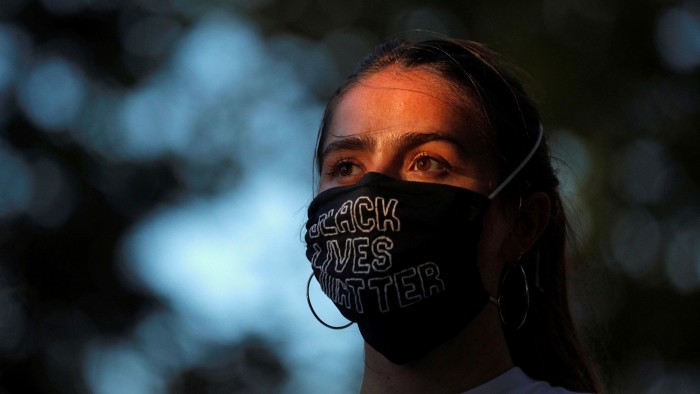Take ESG sceptics’ claims with a lorry load of salt

Roula Khalaf, Editor of the FT, selects her favourite stories in this weekly newsletter.
Even before Covid-19 hit, there was a growing clamour around the need to integrate environmental, social and governance (ESG) factors into corporate and investment decisions, taking a wider range of stakeholder interests into account. This was intensified by the pandemic and the death of George Floyd, which put social issues and equality under the spotlight.
However, some remain wedded to the old orthodoxies, accusing ESG investment and stakeholder capitalism of delivering inadequate returns and no meaningful change for society as a whole.
This is nonsense. ESG investors seek to avoid companies that exacerbate the world’s problems and increase risk, and instead look to direct capital to those that provide solutions, reduce risk and drive up long-term value. Taking against this common sense approach is, at best, a challenge. So the sceptics’ case against ESG investing usually rests upon the construction of numerous straw men.
First, there is the claim that ESG advocates assert that shareholder returns can always align with the social good. But, in reality, ESG investors’ starting point is different: the mitigation of risk.
As indicated by Edelman’s regular survey of institutional investors, a company’s ability to manage ESG factors is widely viewed as a proxy for prudent risk management, and with good reason. Earlier this year, Société Générale examined the impact of ESG-related controversies and found that in two-thirds of cases a company’s stock experienced sustained underperformance, trailing peers over the course of the following two years.
This is because businesses do not exist in isolation from the communities in which they operate. They need people to buy their products, staff their workplaces, provide a supportive environment, and so on.
Indeed, they need climate change to be reversed. If it is not, that will certainly not be conducive to profit making. Companies’ licence to operate is granted by citizens through democratic government, and will necessarily be circumscribed and jeopardised if the interests of customers, employees, suppliers and local communities are not properly accounted for.
At Edelman, we recently published a study of the critical role that the public expects brands to play during the pandemic.
A majority of respondents said they had already punished companies they perceived to be doing the wrong thing, with a third saying they had convinced other people to stop using a brand they felt was not acting appropriately.
Millennials are particularly activist, at a time when a transfer of assets worth tens of trillions of dollars to this cohort is under way. Among this generation, almost nine in 10 wealthy investors say a company’s ESG record is an important consideration in their decision about whether to back it or not, according to Bank of America.
Critics also like to claim that, in constructing portfolios, ESG investors are obsessed with exclusionary screening and divestment from certain industries such as fossil fuels.
In truth, ESG investors deploy a range of approaches, including negative screening, norms-based screening against minimum standards, and positive screening. And when it comes to fossil fuels, there is a recognition that while cleaner alternatives to coal can be deployed at scale — which would justify an exclusion of the entire sector — the same cannot be said with regard to oil and gas, where incentives to transition can be more productive.
You also hear the claim that ESG investing and stakeholder capitalism is against the law, as it may conflict with the financial interests of retirement plans.
The law firm Skadden recently produced a memo for Harvard Law School that debunks this line of argument, making it clear that directors’ statutory mandates and fiduciary duties allow for stakeholder interests to be taken into account.
ESG sceptics often wrap up their case by saying it is not the place of companies to seek to change the world, but for politicians and governments to regulate and set the right rules. This should be taken with a lorry load of salt. Many of these sceptics are disciples of the economist Milton Friedman who argued for deregulation and minimal state intervention in the market.
So critics do not want companies to act — and neither do they care much for governmental action. In short, theirs is a recipe to do nothing when a flawed system has been short-changing investors and citizens for far too long.
The writer is the head of ESG (Emea) at Edelman, the corporate advisory and communications firm, and was the UK’s shadow business secretary from 2011-2015
Comments